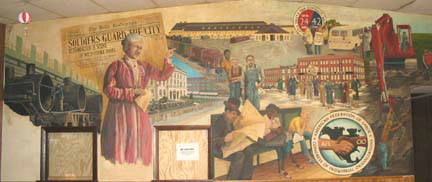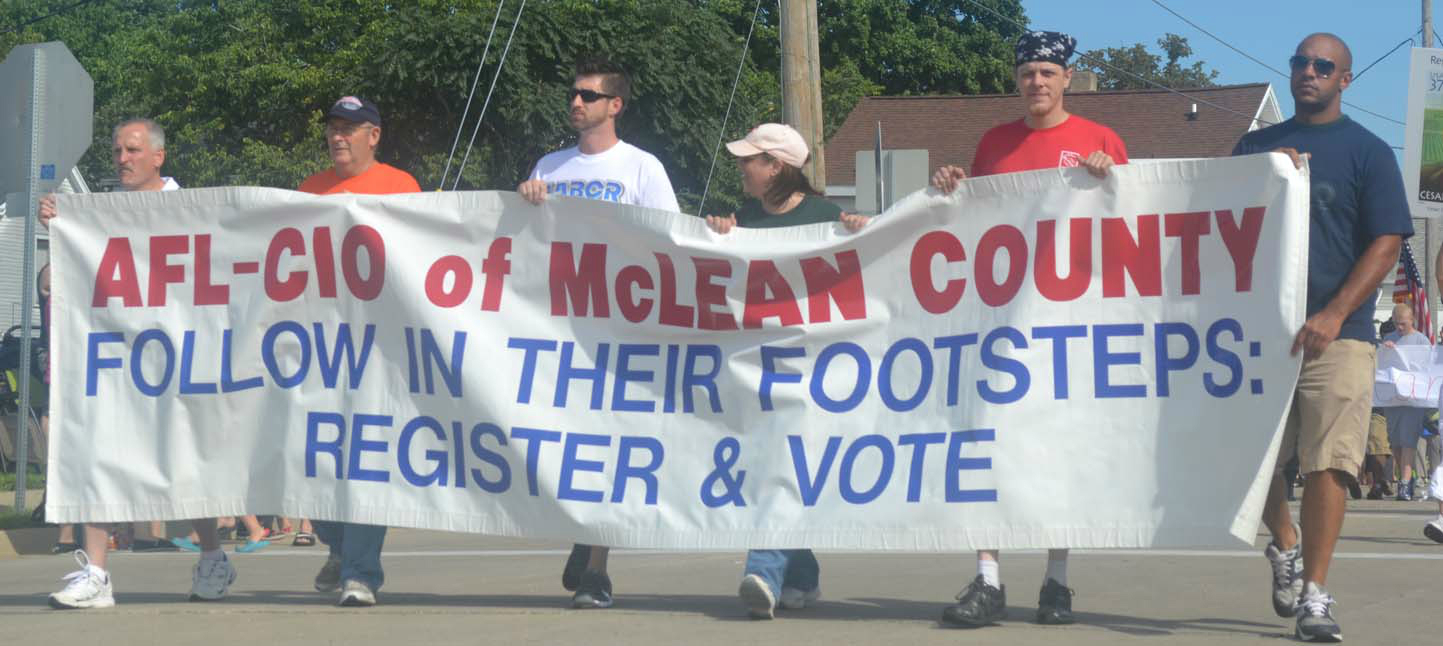|
“Joe Hill has never died” -- if you are of a certain generation, you remember Woodstock and Joan Baez singing an “organizing song” about some guy named Joe Hill.
Joe Hill was real -- a Swedish immigrant who became a vocal union organizer, executed by Utah in 1915, charged with a murder which many claim was trumped up.
Joe Hill wrote songs and parodies, drew cartoons, and trumpeted the radical early 20th century labor union, the Industrial Workers of the World (IWW).
On the centennial of his execution, Chicago’s Bucky Halker has released an enticing CD of Hill songs, Any Place but Utah. Joe Hill took popular music and religious hymns, twisting them into either satirical pieces or triumphal anthems, calling workers to join the “one big union.”
The IWW believed not in union contracts but in direct action by workers, on the job and in the community. They did not trust leaders, hated capitalism and proclaimed a utopian vision of a worker-run nation, with decisions made through job site democracy. Their message resonated with itinerant farm laborers, timber and construction workers and immigrants, whose mobility or language barriers restricted their access to traditional unions.
Hill’s songs reflect those workers’ world -- proud of their work and skills, not afraid to sabotage an unfriendly employer and an uncompromising belief in a better world.
Halker’s interpretations here reflect various styles -- Dixieland, blues, rock, klezmer and pop music. Folk music is often played with guitar, but in Joe Hill’s day, a piano, violin, accordion or ukulele might have been more accessible, and this album reflects those various approaches.
Amazingly, this Swedish immigrant very quickly learned American speech, idiom and phrases, turning them into playful lyrics. Before radio, TV, IPods or records, people actually would gather and sing to entertain themselves. Workers often formed choral societies or brass bands. Hill knew that world well and wrote his music appropriately. In that tradition, Halker has a Swedish chorus perform two of the pieces, reflecting diverse musical traditions.
There’s another side of Joe Hill that’s rarely explored. “Tin Pan Alley” was a New York enclave that pumped out sheet music and created the day’s “hits.” Halker includes two Hill romantic songs that any publisher would have scooped up -- testament to his talent and many dimensions.
Some language and expressions in the songs might seem odd today, but were popular slang in the early 20th century. Halker includes excellent liner notes to clarify this, tells Hill’s story, how Halker came to interpret the pieces and the labor and popular context.
This CD works on multiple levels -- it’s an appreciation of a creative labor militant and an historic document of a volatile time, when workers were suffering low wages, sweatshops and exploitation, their union efforts crushed by state militias, police and hired thugs. In a nation today increasingly separated between the ‘haves” and the “ have nots,” Joe Hill’s century-old messages still resonates with a shared vision of a worker-empowered, fairer society.
by Mike Matejka
|



